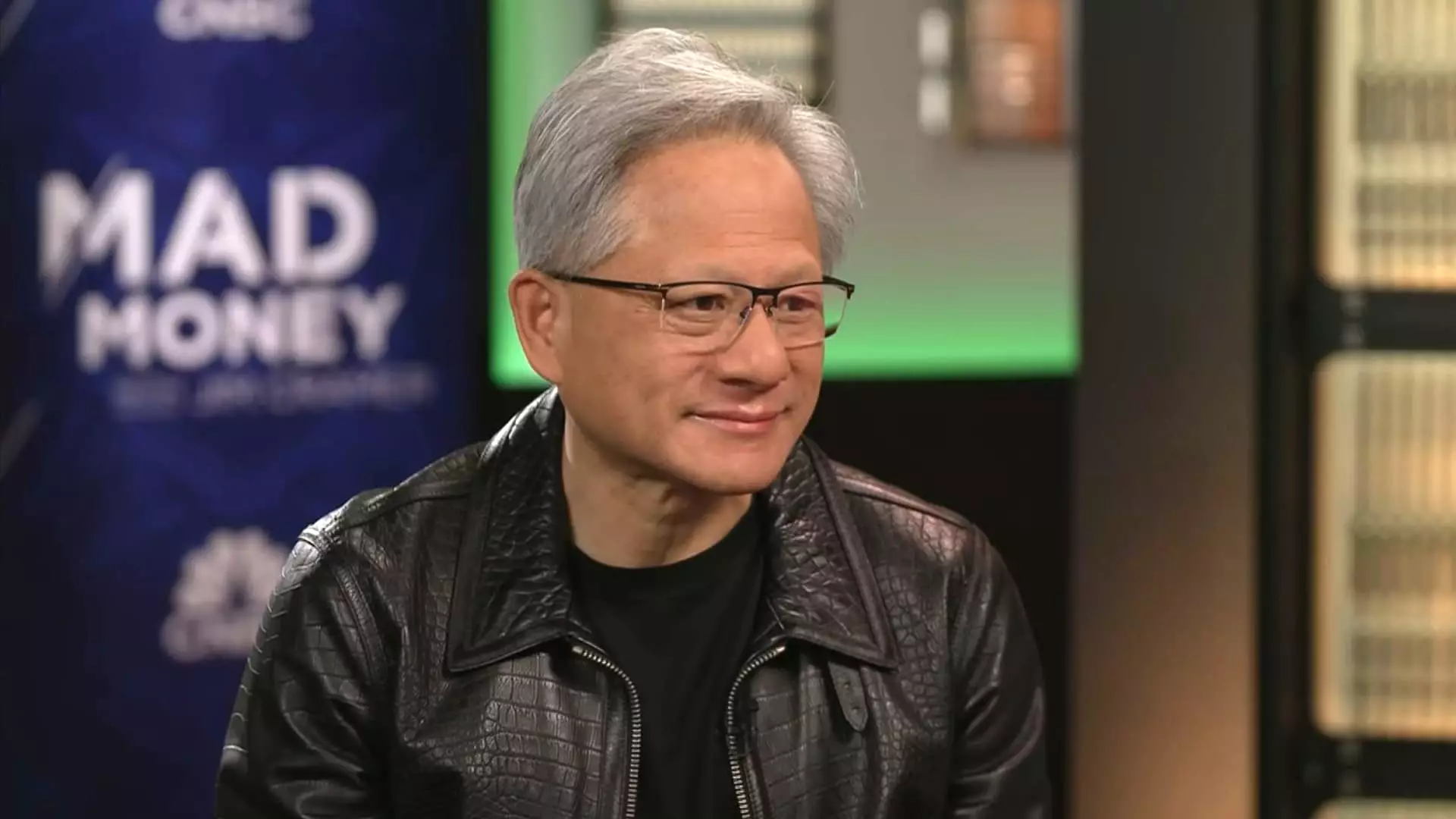In a landscape dominated by uncertainty, Nvidia’s CEO Jensen Huang exudes confidence, dismissing the consequences of President Trump’s aggressive tariff strategy as inconsequential. While Huang’s optimism is commendable, it raises eyebrows. The assertion that the tariffs will have a negligible impact on Nvidia could be viewed as an exercise in selective optimism, perhaps enabling him to maintain investor confidence in a turbulent market. The reality is that tariffs often act as a double-edged sword, temporarily shielding domestic manufacturers while alienating consumers through rising prices and reduced product availability. Huang’s assurance that building AI in America will overshadow any tariff fallout is a polarizing take when juxtaposed with the palpable anxiety surrounding a potential trade war.
Trump’s Trade War and Its Discontents
Trump’s imposition of tariffs on key trading partners underscores a larger ideological battle over globalization and protectionism. Historically, trade wars stifle growth and innovation rather than foster them. Huang’s assertion that “manufacturing onshore is going to be very, very possible” fails to address the logistical and economic complexities of reshoring operations. While he touts partnerships with manufacturers like TSMC, it would be imprudent to overlook the real risks of operational delays, increased costs, and the potential exodus of skilled labor seeking opportunities beyond embattled borders.
Huang’s enthusiasm is foundational but may inadvertently mask the inevitable challenges Nvidia faces. The company operates in a fast-paced sector where strategic agility is crucial, and any miscalculation could have disastrous consequences.
Unpacking Nvidia’s Stock Decline
Currently, Nvidia’s stock has plummeted over 20% from its high earlier this year, a stark wakeup call for investors. While Huang attempts to dismiss concerns stemming from Chinese AI competition, the rise of DeepSeek—a company poised to challenge Nvidia’s market supremacy—is significant. It signals an inflection point where even industry titans can be undermined by swift, aggressive innovation elsewhere. If Nvidia underestimates its competitors while clinging to its legacy, it risks becoming a cautionary tale.
Additionally, Huang’s admission that Nvidia’s revenue from China has been halved constitutes a strong indication of vulnerability. The narrative that domestic markets can fully compensate for losses abroad is a simplification that disregards the nuanced, interconnected nature of global trade, especially in tech.
The Broader Implications of Export Controls
The heightened export controls imposed during the Biden administration exacerbate a problematic scenario for Nvidia. Huang’s characterization of these restrictions as obstacles reflects a critical reality: innovation is increasingly hampered by geopolitics. The company’s long-term strategy hinges not just on the American marketplace but also on an ever-shrinking Chinese consumer base, once considered essential for tech giants.
Nvidia’s reliance on manufacturing and sales in China tied to the success of its core products renders the company precarious in the face of international policy shifts. By underplaying these realities, Huang may inadvertently set unrealistic expectations for investors and stakeholders.
In the immediate future, Nvidia stands at a crossroads, teetering between innovation-driven triumph and sector-specific challenges that could erode its standing in a fiercely competitive market.

